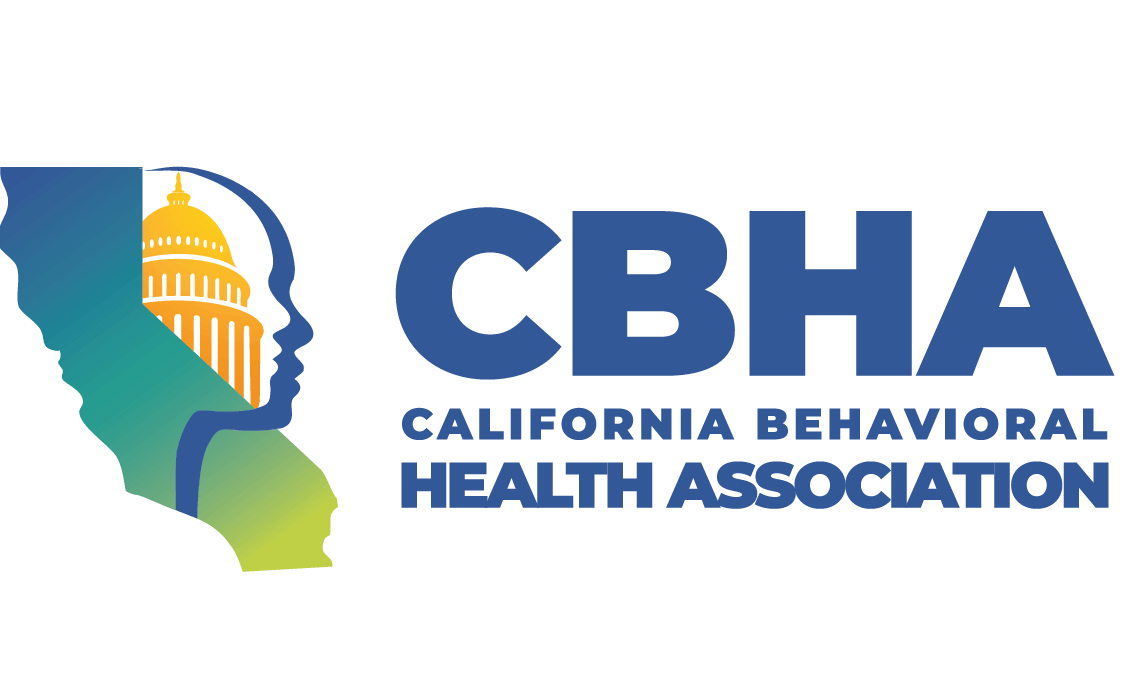Thank you to our sponsor!

NatCon25 California Delegation Social
CBHA is building community from coast to coast! We invite you to enjoy a memorable gathering at the National Liberty Museum featuring food unique to Philly, promoting meaningful connections with peers, and the chance to unwind after a busy day.
Guests are welcome to experience all the exhibitions at the Museum during the social!
NatCon25 Information
Date: May 6th, 2025
Time: 5:00 - 6:30pm ET
National Liberty Museum Philadelphia
321 Chestnut Street
Philadelphia, PA 19106 United States
Directions from the Pennsylvania Convention Center to the National Liberty Museum
NatCon 25 Venue: Philadelphia Convention Center
1101 Arch Street, Philadelphia, PA 19107
Upon arrival at the Convention Center, please follow the signs to Registration. To pick up your badge, visit Badge Pickup at Registration in the Grand Hall during the following hours:
- Sunday, May 4: 7 a.m. – 6 p.m. ET
- Monday, May 5: 7 a.m. – 6 p.m. ET
- Tuesday, May 6: 7 a.m. – 4:30 p.m. ET
- Wednesday, May 7: 8 a.m. – 12:30 p.m. ET
To print your badge, simply scan the unique QR code sent to you via email at one of the designated computers near the Registration Desk. Please note the following:
- Badges can only be printed for yourself.
- You cannot print badges for others.
- Badges must be worn at all times during the conference.
- If you lose your badge, please visit the Help Desk.
- A NatCon25 staff member will be nearby to support.
Connect to Wi-Fi
They are providing complementary Wi-Fi throughout the conference. To connect to the Wi-Fi, please select the following network and enter the password provided
Network: NatCon25
Password: nationalcouncil
Don't Miss These Presentations at NatCon!
Click here to learn more about the sessions held by California leaders.
MHFA12 - Breaking Down Barriers: Adapting and Addressing Challenges While Instructing a Course
Sunday, May 4, 2025
11:15 AM – 12:15 PM ET
Learning Objectives:
- Identify common training environment challenges and related adaptation strategies.
- Describe how to create and utilize a versatile box of essential resources to ensure seamless facilitation in any training setting.
- Outline techniques that contribute to delivering positive and effective learning experiences that maintain program fidelity.
A8 - Better Together: Implementing Workforce Development Training Programs Within Integrated Collaborative Care Models
Monday, May 5, 2025
10:15 AM – 11:15 AM ET
Learning Objectives:
- Demonstrate the benefits of using associate level clinicians in the Collaborative Care Management model by exploring Kaiser Permanente Washington’s journey from planning to sustainment.
- Illustrate fundamental key components to implement across large and small-scale healthcare organizations seeking to launch a post master’s associate program to support full optimization of the Collaborative Care Management model.
- Describe quality improvements, including positive feedback from patients and improved patient outcomes, derived from utilization of associates working within the multidisciplinary Collaborative Care Management team.
MP31 - Advancing Quality in Shared Housing: Overcoming Stigma and Supporting Recovery
Monday, May 5, 2025
12:30 PM – 1:00 PM ET
Learning Objectives:
- Explore the recommended seven quality standards in supporting positive shared housing.
- Identify opportunities in reducing stigma when locating shared housing.
- Discuss overcoming challenges associated with managing shared housing, including specialty populations (e.g. men with children, women with children and formerly incarcerated individuals).
MTL2 - Workforce Innovations That Improve Community Health
Monday, May 5, 2025
3:15 PM – 4:15 PM ET
Learning Objectives:
- Identify ways to improve the behavioral health workforce
- Examine impacts on community health.
- Explore the future trends impacting workforce strategies in the U.S.
D2 - The Recovery Incentives Program: California's Contingency Management Benefit for Medicaid Beneficiaries With Stimulant Use Disorders
Monday, May 5, 2025
3:15 PM – 4:15 PM ET
Learning Objectives:
- Analyze the effectiveness of California's implementation of evidence-based contingency management services to treat stimulant use disorders among Medicaid beneficiaries, including impacts on substance use and quality-of-life outcomes.
- Identify lessons learned about delivery of contingency management in a large state's Medicaid system of care, including implementation barriers and strategies to overcome them.
- Explore implications of early lessons learned from California's Recovery Incentives Program for other states considering offering contingency management to Medicaid beneficiaries, and for federal policy regarding incentives in Medicaid programs.
E9 - Healing Trauma: The Power of Neurofeedback
Monday, May 5, 2025
4:30 PM – 5:30 PM ET
Learning Objectives:
- Learn about Neurofeedback as an integrated approach to mental health challenges in the most complex populations
- See the exceptional outcome measures compiled through the NAP’s Results Tracking System
- Learn how to become a part of the Neurofeedback Advocacy Project and implement a successful Neurofeedback program in your organization
TTL2 - Why Community Matters in Behavioral Health: An Imperative for Change
Tuesday, May 6, 2025
10:00 AM – 11:00 AM ET
Learning Objectives:
- Emphasize the lack of community today’s mental health environment
- Explore lessons from the recovery community in an increasingly lonely world that can be instructive to mental health care.
- Highlight a lack of parity between mental health and substance use treatment to inspire collective action
G13 - Identifying Symptom Domains of Schizophrenia Using Natural Language Processing
Tuesday, May 6, 2025
11:15 AM – 12:15 PM ET
Learning Objectives:
- Identify how natural language processing (NLP) can be used to detect cognitive impairments and negative symptoms in patients with schizophrenia using electronic health records (EHRs).
- Explore the potential benefits of integrating artificial intelligence (AI) tools in mental health practice to improve early detection and intervention for schizophrenia.
- Discuss the impact of cognitive impairments and negative symptoms on patient outcomes and healthcare systems, and how AI-driven approaches can address these challenges.
K11 - Infant and Early Childhood Mental Health: Key Considerations for Providing Whole-family Care
Wednesday, May 7, 2025
10:30 AM – 11:30 AM ET
Learning Objectives:
- Attendees will be able to define infant and early childhood mental health (IECMH)
- Attendees will be able to discuss the importance of IECMH to an individual child’s development and to the health of the family system
- Attendees will identify one measurable action they can take to better integrate IECMH into their own work
Building A Bigger Table: Reaching Communities and Members Beyond Your Base
Date: Monday, May 5, 2025
Time: 4:30 PM – 5:30 PM ET
Location: Theater 1 Exhibit Hall -
EXPO3 - Building A Bigger Table: Reaching Communities and Members Beyond Your Base
Breakout Presenters

Le Ondra Clark Harvey, PhD
Chief Executive Officer
California Behavioral Health Association
Sacramento, California

Ben Renteria
Director of Certified Community Behavioral Health Clinic (CCBHC) Integration & Development
WellSpace Health
Sacramento, California

Sadie Thompson, CPSS, ALF WRAP
Chief Implementation Officer
Wellbeing Initiative, Inc.
LINCOLN, Nebraska
Transforming Mandated Reporting to Community Supporting: Improving Outcomes for Families
Date: Tuesday, May 6, 2025
Time: 2:45 PM – 3:45 PM ET
Location: 116
Join us as we explore how transforming the role of mandated reporting can lead to improved outcomes for children, families and communities, ensuring that families receive the help they need without facing the trauma of separation. Together, we can bring awareness and advocate for policies that reflect our commitment to community wellbeing and family unity.
Learning Objectives:
- Examine the current mandated reporting framework, exploring its history, structure and impact on Black, Brown and Indigenous families and communities. Articulate a comprehensive case for reform by identifying systems-level diparities, including overreporting of general neglect tied to poverty, punitive interventions and unnecessary family separations, and the resulting lifelong trauma. Engage in critical discussion of the unintended consequences of mandated reporting and the need for fair, family-centered and data-informed decision-making solutions.
- Explore innovative strategies, including promising practices in California and Los Angeles County, aimed at transforming mandated reporting to community supporting to improve outcomes for children, families and communities. Examine how emerging technology trends and tools are being leveraged to enhance mandated reporting processes and support frontline community and government workers in delivering fair and effective prevention and intervention services.
- Discover effective strategies to advocate for and empower communities both locally and on a national scale, driving meaningful change and promoting fairness and accessibility.
Moderator:

Diane Elias, Ed.D.CP, LMFT
Vice President School Age
Children's Institute Inc.
Los Angeles, California
Breakout Presenters:

Katie Albright, JD
Senior Advisor
Safe & Sound
SAN FRANCISCO, California

Alain J. Datcher, MPP
Senior Manager, Government and Public Services
Deloitte
Los Angeles, California

Tamara N. Hunter, DSW
Interim Executive Director
Los Angeles County Committee on Prevention and Promotion
Carson, California
We are excited to share the memories captured throughout the event. From impactful keynotes to engaging panel discussions, our photo gallery brings it all back to life! Browse through and relive the inspiring moments, connect with colleagues you met, and see some behind-the-scenes highlights from our memorable gathering.
